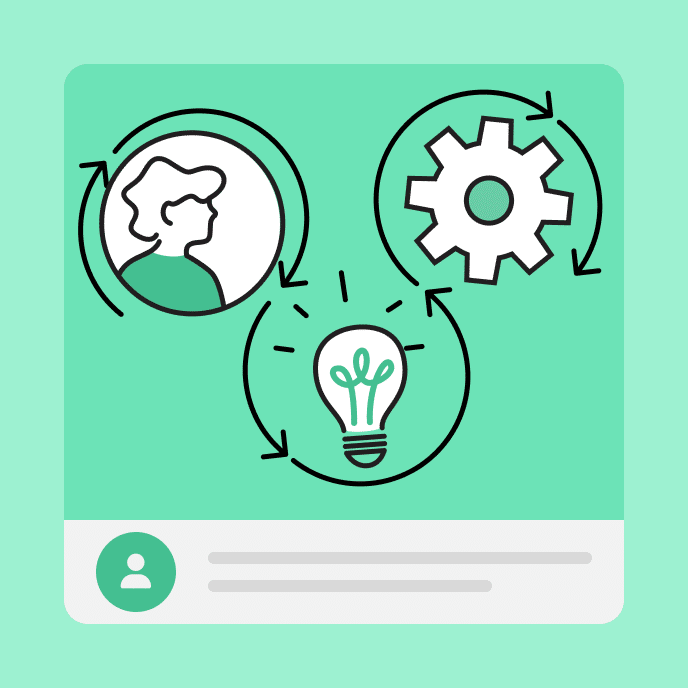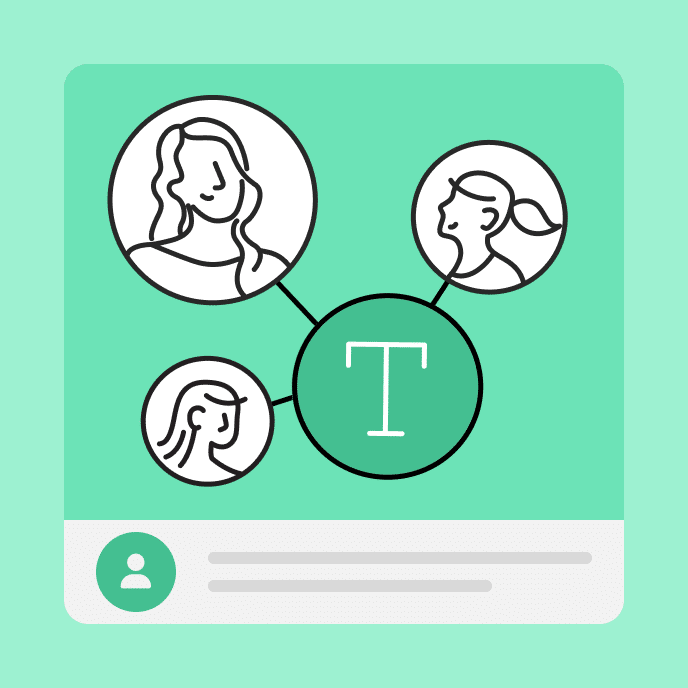3 Tricks to Add Self-Reflection into Workplace E-Learning
We cover 3 self-reflection tactics for making online courses more effective and applicable to learners and explore how one company did it.

The power of self-reflection
In both in-person and online learning, self-reflection allows us to improve our comprehension. Rather than merely understanding a concept’s definition, it teaches us to contextualize that concept in terms of our own actions and experiences.
Ultimately, this method can give us valuable insights into how we’ve achieved progress in the past—and how we might behave differently or improve in the future. Encouraging individuals to look inward and reflect on how their own actions align with particular concepts can make them more likely to remember, engage with, and understand the lessons well enough to enact positive change.
In this post, we’ll cover three key tactics to apply to your own online courses to make them more effective and applicable for your learners. We’ll also explore how one organization applied these strategies to create empowering and supportive e-learning.
Read our case study with the National Institute of Intellectual Disability Studies (NIIDS) for a real-life example of these best practices in action.
Key Takeaways
Take personal and professional growth to the next level
3 successful tactics to start a workplace reflection process with e-learning
The Institute uses several tactics to use the power of reflection in its e-learning courses. These exercises help learners gain valuable insights to achieve deeper concept understanding and improve job performance. Below, we’ll cover three of their most impactful e-learning components for self-reflection: ungraded assessments, practice scenarios, and branching opportunities.
1. Ungraded assessments
Assessments—such as quizzes—are among the most common ways to track learners’ progress and reinforce lesson materials. This type of checkpoint is inherently self-reflective because it allows learners to test their own knowledge. Yet there are plenty of other opportunities to apply personal experiences to lesson concepts.
First, considering open-ended reflective questions can help the learner think beyond graded assessments. Short-answer, form-based, or essay questions are effective examples. Pair open-ended questions with graded assessments to provide a complementary way of thinking and tackle the same concepts from a different angle. Adding each type before and after a lesson can allow learners to pause and absorb new information.
2. Practice self reflection with scenarios
Practice scenarios walk the learner through a situation that illustrates a lesson concept. This type of exercise is a powerful tool that allows learners to consider past actions in this situation. Then, they can practice applying the new concepts.
For the Institute, practice scenarios are key to demonstrating complicated topic nuances. For example, in a course on reducing the use of restrictive practices, a detailed practice scenario guides learners through ways to support an individual with a complex intellectual disability while preserving that person’s autonomy.
Practice scenarios provide a new script for future interactions. These scenarios offer tangible solutions to thorny issues to reinforce behavioral change. Interactive elements can reinforce the realism of a practice scenario and encourage even deeper reflection on past and future actions.
3. Multiple ways to learn
The Institute doesn’t take a blanket approach to educating organizations about providing exceptional service to individuals with disabilities. Rather, NIIDS tailors training to fit the complexities of different organizational roles. After all, front-line workers and upper management have different functions, daily responsibilities, and opportunities to improve. Tailoring different lessons to different roles helps the Institute ensure that individuals with disabilities receive the best possible support from multiple angles.
One way to teach from many angles is with branching scenarios or multiple paths. This valuable e-learning tool offers different categories of learners separate customized paths within a course. With endless branching possibilities, organizations can reach many variable factors such as role types and age groups.
Branching scenarios require learners to engage with the course to get tailored paths. This customization nudges users to better habits while they learn.

How the NIIDS encourage self-reflection for personal and professional development
Few organizations understand the impact of self-reflection in e-learning quite like the National Institute of Intellectual Disability Studies. For decades, the Irish organization has provided other companies with accredited training and resources to support individuals with disabilities.
With a library of over 700 courses, the NIIDS’s content doesn’t just cover broader topics like essential workplace skills. It also provides organizations with training on highly nuanced topics like well-being, relationships, and sexuality. For these complex courses, in particular, the self-reflective element is crucial to understanding and applying the key lessons for personal growth.
“We help organizations reflect on key questions about their approach and the individuals they serve,” says Martha McGinn, the Institute’s Company Director. “What are the gaps in their knowledge?”
The Institute encourages organizations to think this way to help them understand how best to support the individuals they serve. Studying through a reflection process helps them promote client autonomy while offering concrete and empowering support.
Holding up the mirror: work reflection and e-learning
To make e-learning truly memorable, it’s key to build in components that allow learners to tie lesson material back to their own experiences, actions, and perceptions. Implementing multiple reflective elements into a single course helps training leaders lay the groundwork for a deeper level of understanding that goes beyond comprehension and into application.
To learn more about how organizations can create memorable e-learning, read our case study with the National Institute of Intellectual Disability Studies.
You may also like

The ADDIE Model: 5 Steps to Effective Workplace Training
Explore the five phases of the ADDIE Model, and learn how to apply them for an adaptable, iterative approach to creating relevant workplace training.

